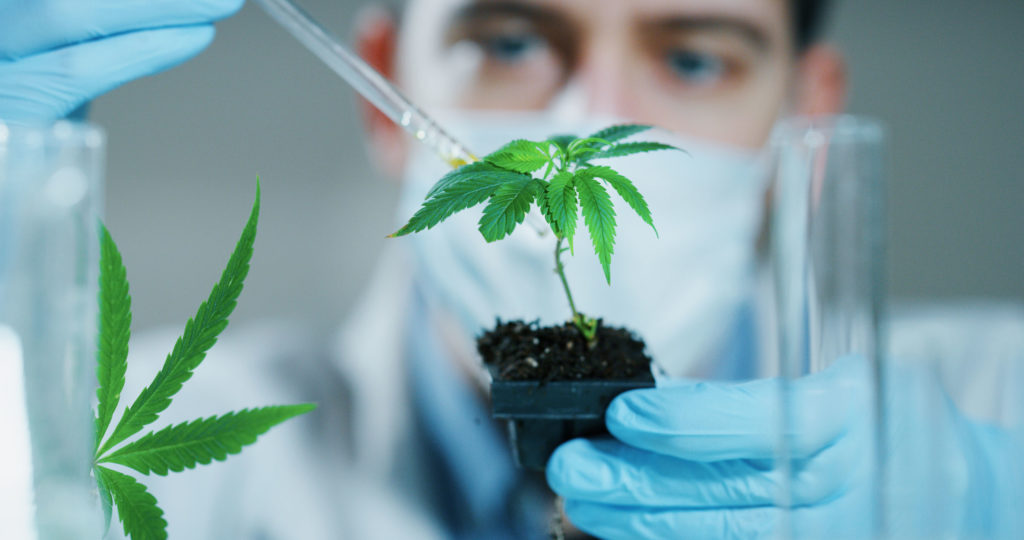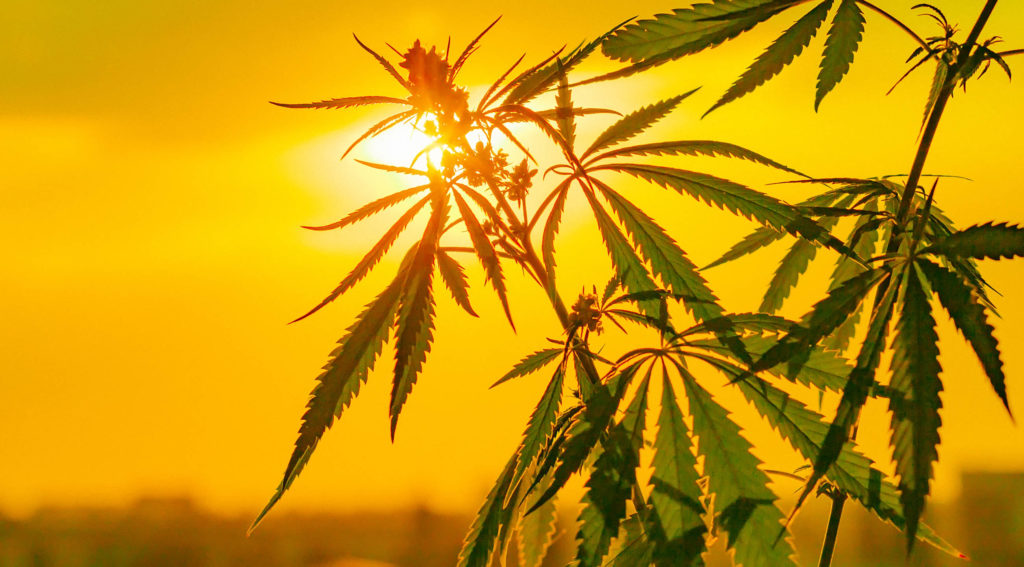Uruguay was the first country in the world to legalise recreational and medicinal cannabis use. This law enables adults over the age of 18 to obtain up to 10 grams per week, from their local pharmacist. The decision to legalise was an attempt to combat Uruguay’s black market – by offering a higher quality product at a potentially lower price.
- Capital
- Montevideo
- Population
- 3,549,000
- CBD Products
- Legal
- Recreational cannabis
- Legal
- Medicinal cannabis
- Legal since 2013
- Cannabis laws in Uruguay
- Can you possess and use cannabis in Uruguay?
- Can you sell cannabis in Uruguay?
- Selling cannabis – the reality
- Can you grow cannabis in Uruguay?
- Is CBD legal in Uruguay?
- Can cannabis seeds be sent to Uruguay?
- Medicinal cannabis in Uruguay
- Exporting medicinal cannabis
- Industrial hemp in Uruguay
- Good to know
- Cannabis history
- Attitudes towards cannabis
- Uruguay’s cannabis clubs
Cannabis laws in Uruguay
Can you possess and use cannabis in Uruguay?
It’s legal to possess and use cannabis in Uruguay. Indeed, it was the first country in the world to legalise recreational cannabis, in 2013.
Uruguay has never listed personal use of drugs as a criminal activity. Back in 1974, a law was passed, enabling judges to decide whether the individual possessed drugs for personal or commercial purposes.
In 2012, President Mujica took this one step further, and presented his plans to legalise cannabis completely in Law 19.172. The intention was to reduce organised crime, and the social problems associated with it.
The law now states that individuals may access up to 10 grams of cannabis per week. This ensures that retailers aren’t placed under undue stress by buyers wishing to bulk-buy once a month, for example.

Originally, the law also guaranteed a price of $1 per gram of cannabis. The exact price has fluctuated since then (going down, rather than up), and this ensures that the government has the competitive edge over illegal suppliers.
In order to legally purchase cannabis, some rules and restrictions apply, such as:
- Individuals must be registered
- The cannabis must come in a box that advertises the potential risk to health (like tobacco packaging)
- The cannabis must not be consumed in a public place
- The individual may not drive a vehicle if their reactions are impaired by cannabis use
Can you sell cannabis in Uruguay?
In 2013, a bill was passed to legalise and regulate the sale of cannabis.
Julio Calzada, the Secretary-General of the country’s National Drug Council, emphasised that the government would be in charge of regulating cannabis production. He added: “Companies can get a licence to cultivate if they meet all the criteria. However, this isn’t a free market. The government will control the entire production, and determine the price, quality, and maximum production volume.
He stated that individuals over the age of 18 would be permitted to purchase as much as 40 grams of cannabis each month. Foreigners would not be allowed to buy cannabis (which effectively stamped out any prospect of ‘cannabis tourism’), and moving it across international borders would still be regarded as a criminal offence.
Retailers must only sell cannabis in boxes with warnings on them, outlining the potential risk to health (like tobacco packaging). Also, the cannabis must not be on display to the general public, and it must contain no more than 15% THC.
Selling cannabis – the reality
Although the law was passed in 2013, it took a further three and a half years before the first retailers were able to sell cannabis to customers.
Part of the reason for the postponement was the reluctance of pharmacies to commit to sell it. Uruguay’s pharmacy association (AQFU) strongly opposed the sale of cannabis for non-medicinal uses, and were concerned about illegal competition. For example, one pharmacy owner, Marcelo Trujillo, commented in an interview with The Cannabist: “I don’t see the need to get into a conflict with people who are already selling weed in the neighbourhoods,”, and added “I just don’t want to expose myself or my employees”.
Despite these obstacles, cannabis finally went on sale in 2017.
Esteban Riviera, a pharmacist in Montevideo, commented to the BBC: “We sold a lot of cannabis on the first day. We sold 1,250 packages in six hours. There was a two-block queue to get marijuana.”
However, Riviera, like other pharmacists in Uruguay, ran into problems. Riviera’s bank told him to either cease selling cannabis, or close his account. Unable to take the financial risk, Riviera stopped selling cannabis.
This is largely because many of Uruguay’s lenders rely on partnerships with banks in the US. The US has strict laws regarding the financing of controlled substances, and as such, don’t want to be linked to ‘marijuana money’.
These are undeniable issues – but even though it has caused problems for retailers, the number of outlets stocking cannabis continues to grow.
Can you grow cannabis in Uruguay?
In 2013, President Mujica passed a bill, permitting individuals to grow up to six plants for non-commercial purposes. Also, the total amount of cannabis produced had to equal less than 480 grams per year.
Additionally, registered smoking clubs were legalised, and given permission to grow 99 plants per year. These clubs must consist of 15 to 45 members, and each member may buy up to 480 grams per year.
The law also allowed larger-scale growers to cultivate cannabis, but only with an official licence. When explaining his decision, the president commented that the country wanted to “make a contribution to humanity” by making the drug legal to grow, but would review the situation if the “experiment” didn’t go according to plan.
Is CBD legal in Uruguay?
CBD is legal to use, purchase and sell in Uruguay. However, it’s surprisingly difficult to obtain.
For example, a patient requiring CBD to treat their epilepsy only has access to one product – Epifractan. Yet there are four different cannabis varieties available in the retail outlets, and recreational users can also grow their own at home, or as part of a cannabis club.
Additionally, CBD products are considerably more expensive than cannabis. While cannabis is around $1 per gram, Epifractan costs around $200. This isn’t an option financially for many people in the country.
Research found that two-thirds of people who used CBD in Uruguay obtained it from unauthorised ‘artisan’ producers. This means that it’s unregulated, which is particularly problematic for those self-medicating for a health condition.

Can cannabis seeds be sent to Uruguay?
Cannabis seeds are legal to use, buy and sell. It’s acceptable to grow plants from them, and they can be freely shared or gifted too. However, as cannabis isn’t permitted to leave the country, they cannot be mailed out from Uruguay to other parts of the world.
It’s legal to mail cannabis seeds into the country.
Medicinal cannabis in Uruguay
In many ways, Uruguay’s medicinal cannabis laws are the same as for recreational use. Patients must register with the Institution of Regulation and Control of Cannabis (IRCCA) through their local post office. Once registered, they can then obtain medicinal cannabis products at a pharmacy.
The limits are exactly the same too – 10 grams per week, and no more than 40 grams per month. One particular issue is that the medicinal programme only permits patients over the age of 18 to use cannabis. This may be problematic for children with conditions like epilepsy, for example.
Interestingly, Uruguay also permits inmates in prisons to be treated with medicinal cannabis, with the approval of a registered doctor. Cannabis is often used as a treatment for prisoners who are addicted to cocaine base paste (‘paco’), a toxic by-product of cocaine manufacture.

Exporting medicinal cannabis
In a bid to transform Uruguay into a global player on the medicinal cannabis market, the government is considering large-scale export operations.
Diego Olivera, head of the country’s National Drug Council, stated that Uruguay’s cannabis laws, along with its transparency and strong ruling, gives the country a natural head-start in the industry.
“Uruguay today,” he comments, “has a dynamism in the cannabis industry that is very difficult to find in other sectors.”
Industrial hemp in Uruguay
Like cannabis, hemp is legal to cultivate in Uruguay. Indeed, many of the country’s hemp farmers are optimistic about their prospects, due to one key factor. The recreational cannabis industry is regulated by the government, who tell retailers what they can and cannot sell. The hemp industry is not regulated in the same way, which means more freedom for growers.
Gaston Rodriguez Lepera, a shareholder in Simbiosys (a licenced producer or recreational cannabis in the country), comments: “Uruguay still has an opportunity to develop an industry in areas that aren’t as prickly as recreational pot, [like] socially acceptable ventures like medicinal marijuana or industrial hemp.”

Good to know
If you are travelling to Uruguay (or currently live there), you may be interested to know the following:
- Uruguay was the first country in the world to legalise recreational cannabis use. Canada was the second, but not until five years after.
- Since legalisation, demand for cannabis has been so high that suppliers cannot keep up with demand. Diego Olivera, head of the National Drugs Council, commented: “The demand is greater than our productive capacity. We have to address that challenge.”
- Olivera estimates that around 20 to 25 metric tonnes of cannabis are consumed in Uruguay (the legal and black market combined). Academic studies believe that this figure is as high as 30 metric tonnes – a huge amount for a relatively small country.
Cannabis history
It’s not known exactly when cannabis first came to South America; though historians believe that the Spanish brought the plant with them when colonising the continent.
There’s evidence that the ancient cultures of Mesoamerica were using various plants for traditional sacred rituals. Whether these were related in any way to cannabis is unknown; but what we can guess is that, when cannabis finally arrived in the country, it was recognised and valued for its psychoactive properties. In short – this was probably nothing new to the people that lived there.
The Spanish not only brought cannabis to the continent, they also set up plentiful hemp plantations. Widespread cultivation continued for several centuries after.
Uruguay is unusual in that cannabis use was never classified as a criminal activity, even at the height of prohibition in the US (an anti-cannabis fervour that spread around the world). As such, it seems appropriate that they should be the first country to fully legalise its use, for recreational and medicinal purposes.
Attitudes towards cannabis
Despite Uruguay’s cannabis laws being highly progressive, public attitude perhaps isn’t quite so liberal. In fact, according to one survey carried out shortly after the law was passed, two-thirds of the public opposed the decision. A further survey from 2017 found that opinions had shifted slightly, with just over half of respondents being against the legal status of the drug.
Many people still have the misconception that cannabis is a ‘gateway’ drug that leads users onto harder drugs like heroin and cocaine. They also believe that the laws will worsen security within the country.
Uruguay’s cannabis clubs
The country’s cannabis clubs offer individuals an alternative to retail outlets – letting them grow their own plants as part of a larger group. There are a few rules that the clubs must adhere to. For example:
- They must be legally set up as civic associations
- The name of the club must include the phrase ‘cannabis club’ for total transparency
- They must have between 15 and 45 members
- All members must be permanent residents of the country
- As well as growing cannabis, they must also provide information and education about responsible use
- No more than 99 plants can be grown (female)
- Production / storage is restricted to 480 grams per person, each year
- All cannabis given to members must be reported on a monthly basis to the IRCCA
- Disclaimer:While every effort has been made to ensure the accuracy of this article, it is not intended to provide legal advice, as individual situations will differ and should be discussed with an expert and/or lawyer.











The socialist model of cannabis regulation doesn’t work. Commercialisation is the only sustainable route to legalisation.
How much is 10 grams going to cost?
Let’s hope the U.K soon has this view on medical Marijuana seeds.
showing research and very informative, a great compilation, an Excellent share will be looking for more … keeps on writing. I bookmarked this blogs and share with my friends.
They say there are to be three specially developed strains available to the public by the government. These are genetically modified to be traced if they show up on the black market. Now who could of done that? Supposedly a chief Monsanto shareholder was behind much of the push for the legalization in Uruguay. I can only hope this is the desperate maniacal raving of conspiracy theorists but there is evidence out there. Does anyone else have any proof or know anything of this? The last thing we need is Apocolytic Monsanto strains. Is legalization worth it if that is the case?
I for one will be sad to see him go. I wish we had a leader like him in Northern ireland, instead we have the equilevant of Westboro Baptist Church.
The safest way to regulate cannabis use is to regulate the method of ingesting it– replace $igarette overdose smoking (joint”) with vaporization and 25-mg-serving-size flexible drawtube one-hitters. Uruguay needs a domestic moderate use utensil manufacturing industry to go along with the growing program they are so slowly implementing.
It’s only logical.
I have never thought of visiting Uruguay before, but now that I know that enlightened, adult, and none judgemental people live there, who have realised the benefits of Cannabis, I will aim to holiday there in 2015 when all the legislation has been sorted out. Very many millions of people around the world will agree with me, in saying, Well done Jos’e Mujica.
At $1 dollar a gram that’s a pretty cheap price for bud. I don’t know what that would equal USD wise, but if the U.S. ever goes fully legal I would love to see it as low as a dollar a gram. However there has been speculation that it would be $10 dollars a gram in the U.S.
I think that’s awesome they already have a date set for sales. I am guessing they have started the growing process. I wish I could see the grow. I bet that is one hell of a sight to see.
Now, I can travel to Uruguay for smoka?
This plant was given to us by GOD. Its good medicine to live this life
This is great news. The framework they are using looks really good and should be used in other countries around the world.
laat het er alsjeblieft doorkomen ..
Way to go Uruguay. The world is catching up and we’re falling behind.
Go on Urugay!it will come in France soon!!!!!